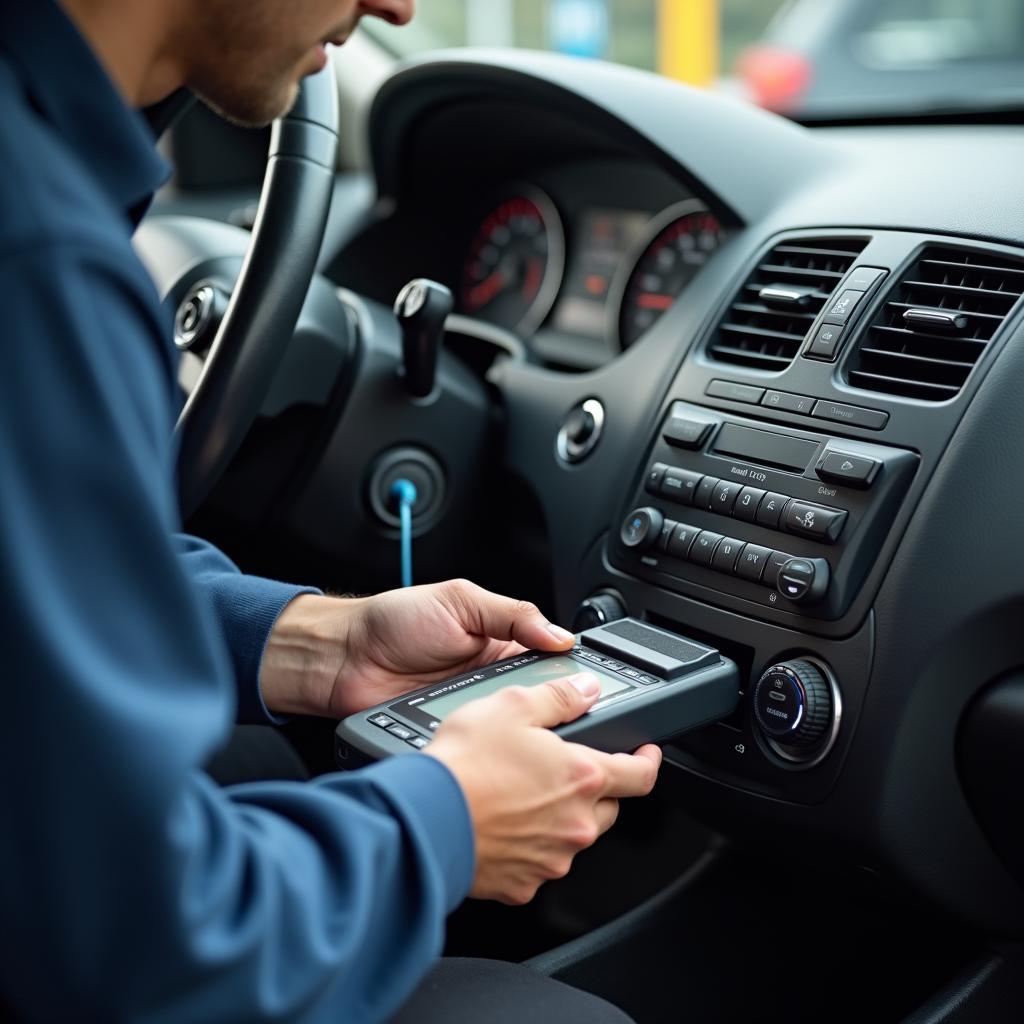A car service is an essential part of vehicle ownership, ensuring optimal performance, safety, and longevity. But what exactly happens during a car service? Many car owners might imagine it as a mysterious process involving greasy overalls and technical jargon. This article delves into the intricacies of a car service, demystifying the procedures and highlighting their importance.
Routine Checks: The Foundation of Every Service
Every car service, regardless of the make or model, begins with a series of routine checks. These checks serve as a preventative measure, identifying minor issues before they escalate into major problems.
Here’s what you can expect during the routine check phase:
-
Fluid Level Inspection: The mechanic will inspect vital fluids such as engine oil, coolant, brake fluid, power steering fluid, and windshield washer fluid, topping them off as necessary.
-
Tire Examination: The mechanic will thoroughly examine your tires, checking their pressure, tread depth, and overall condition. Proper tire maintenance is crucial for safety and fuel efficiency.
-
Brake Inspection: The mechanic will inspect your brake pads and discs (or drums) for wear and tear. They will also check the brake fluid level and look for any leaks in the system.
-
Lights and Electrical Check: All exterior and interior lights will be checked to ensure they are functioning correctly. The mechanic will also examine the battery and charging system.
Going Deeper: Component-Specific Inspections and Maintenance
Beyond the basic checks, a car service delves into component-specific inspections and maintenance tasks. The extent of these procedures will depend on the service schedule outlined in your car’s owner’s manual or the recommendations of a trusted mechanic.
-
Oil Change: Regularly scheduled oil changes are crucial for lubricating the engine’s moving parts, reducing friction, and preventing premature wear.
-
Filter Replacements: Several filters, including the oil filter, air filter, and cabin filter, trap contaminants and need periodic replacement to maintain optimal performance.
-
Spark Plug Inspection: Spark plugs ignite the fuel-air mixture in the engine cylinders. Worn-out spark plugs can lead to misfires, reduced fuel efficiency, and engine damage.
-
Belt and Hose Examination: The mechanic will examine belts and hoses for signs of wear, cracks, or leaks. These components play a vital role in the engine’s cooling, charging, and power steering systems.
what happens when your car is serviced
Advanced Diagnostics: Identifying Hidden Issues
Modern cars are equipped with sophisticated computer systems that monitor various aspects of the vehicle’s performance. During a car service, mechanics use advanced diagnostic tools to connect to these systems and retrieve valuable data.
-
Check Engine Light Diagnosis: If your check engine light is on, the mechanic will use a diagnostic scanner to read the error codes stored in the car’s computer, pinpointing the source of the problem.
-
Electronic System Check: The mechanic can use diagnostic tools to assess the health of various electronic systems, including the ABS, airbags, and traction control.
 Mechanic Using Diagnostic Tool
Mechanic Using Diagnostic Tool
Why is Regular Car Servicing So Important?
“Regular car servicing is like giving your car a health checkup,” says John Smith, Senior Automotive Technician at XYZ Auto. “It helps identify and address minor issues before they become major problems, saving you money and headaches in the long run.”
what happens if i skip a car service
Neglecting regular servicing can lead to:
-
Reduced Fuel Efficiency: A poorly maintained engine consumes more fuel, increasing your running costs.
-
Decreased Safety: Worn-out brakes, tires, or faulty lights compromise your safety and the safety of others on the road.
-
Costly Repairs: Ignoring minor issues allows them to develop into major problems, leading to expensive repairs down the line.
-
Voided Warranty: Some manufacturers require proof of regular servicing to maintain the validity of your car’s warranty.
what happens if a car is not serviced on time
Conclusion: Investing in Your Car’s Well-being
Understanding What Happens In A Car Service empowers car owners to make informed decisions about their vehicles’ maintenance. By adhering to the recommended service intervals and addressing any issues promptly, you can ensure your car remains safe, reliable, and in optimal condition for years to come.
Remember, regular car servicing is not just an expense; it’s an investment in your car’s well-being and your peace of mind.

